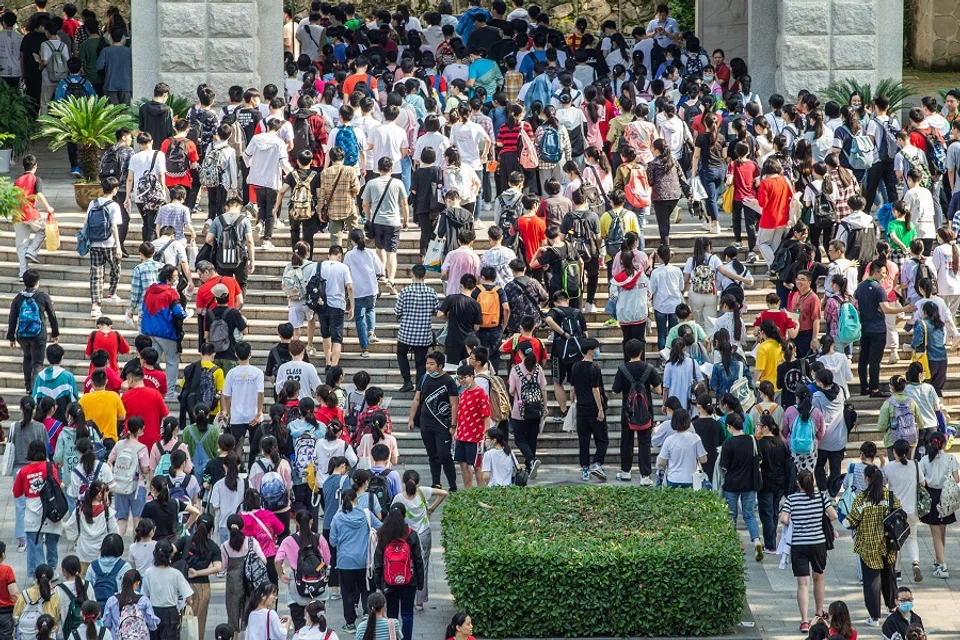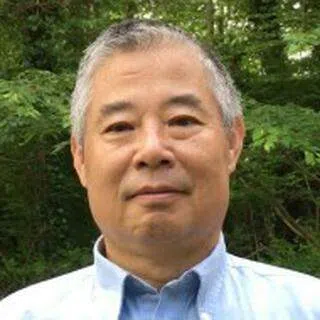Clamp down on Chinese students and academics? America's loss is China's gain
Amid US-China tension, Chinese students and academics in the US are often viewed with suspicion. US academic Han Dongping reminds us that in the past, it was the US who encouraged Chinese students to stay on after their studies and the country had benefited greatly from their contributions in diverse fields. China was at a disadvantage then, in terms of holding on to their top talent, but now with the US closing its doors, it is more than happy to welcome a return to the flock.

In the advanced technological age we live in, countries have come to realise that there is a positive correlation between talent and development. The US's position as a science and technology power, for instance, was built on attracting and taking in large numbers of foreign talent. It had several unique advantages in that regard - abundant resources as well as a land undamaged by the aftermath of WWII, which provided war-battered foreign scientists a conducive environment for scientific research. This was also one of the main reasons why the US became a superpower after WWII.
Foreign students add vitality to American universities
American intellectuals realised early on that attracting foreign students was a profitable and no-loss business. The president of the University of Illinois once said about foreign students who received their basic education in the US: if they remained in the US after graduation, they would become part of a high-quality yet cost-effective workforce; if they returned home, they would become mini ambassadors of America and promoters of American values back in their native countries.
Moreover, American universities owe their vitality to the large numbers of foreign students they take in from different countries. When I went to the US back in the day, I asked my department head why he was willing to invest so much money in bringing a Chinese student to study in the US. He replied that my value to professors and students of the school could not be measured with money.
To strengthen itself, China has always valued the importance of sending students to the West and Japan since the Qing government period.

As an ancient civilisation, China lags behind the West in modern science and technology. This is also the reason why the Chinese feel that they are being bullied by major Western powers. To strengthen itself, China has always valued the importance of sending students to the West and Japan since the Qing government period. When the People's Republic of China was founded in 1949, the Chinese government began sending students to the Soviet Union. Most early Chinese students who studied abroad, apart from a rare few, returned to China after graduation. Early professors of Peking and Tsinghua universities had studied overseas. Prominent Chinese scientists such as Qian Xuesen, Deng Jiaxian, and Qian Sanqiang all made invaluable contributions to China's technological development after they completed their overseas studies and returned to China.
China's history of learning from the US
After China and the US established diplomatic relations in 1979, China began sending students to the US again. I taught at Zhengzhou University after I obtained my master's degree in 1985. I was, in fact, among the first batch of master's graduates since China's gaokao (college entrance exams) was reinstated in 1977. This batch of master's graduates is unique in the sense that they were chosen from a huge pool of young people who lost their chance for university education during the ten years of Cultural Revolution. They were stringently chosen from the gaokao for university, and even more stringently assessed before they got a place in the master's programme. It would not be wrong to say that this batch of students was considered the country's top students at that time.
Chinese universities went all out to attract these top talents to teach in their schools. For example, Zhengzhou University specially built a residential building to house master's graduates willing to teach at the university. These graduates were each given an apartment with two bedrooms and a living room, a privilege that even some of the most experienced and older professors did not enjoy.

This residential building had a total of 36 units. From the day that these individuals stepped into the university, they began preparing for the TOEFL and GRE tests. By 1988, apart from one or two teachers from the Chinese and History departments, all other teachers from the Science and Engineering departments were accepted by American universities. Back then, the Chinese government and universities across the country strongly encouraged overseas study because of an agreement between China and the US - J-1 visa holders were subjected to a two-year home country physical presence requirement which meant that they had to return home and work for at least two years before they could travel again. Some universities even paid for the air tickets for students to study abroad.
American policies started trend of Chinese staying in the US after their studies
In April 1990, US President George H. W. Bush signed an executive order that gave Chinese nationals already in the US prior to April 1990 unconditional permanent residency in the US. Approximately 800,000 Chinese students studying in the US became permanent residents of the US as a result. This incident had far-reaching consequences - Chinese students decided to remain in the US. Since then, Chinese students studied abroad with the aim of staying in the US.
In that era, approximately 30% of students from Peking, Tsinghua, and the University of Science and Technology of China received admission letters from American universities upon graduation. In the next five years, most students chose to further their studies in the US. Once, 22 out of 23 master's students of the Chinese Academy of Sciences' Institute of Oceanology chose to pursue their doctoral degrees in the US, and ultimately remained in the US. A large proportion of ocean researchers in the US are Chinese. Whenever the US conducts ocean science conferences, almost half of those present are Chinese.
In recent years, however, China has strengthened exchanges with US-based Chinese academics by inviting them to academic conferences in China, making them visiting professors, and launching programmes such as the Chang Jiang Scholars and Thousand Talents programmes...

At first, the Chinese government could do nothing about the US government intercepting Chinese international students and keeping them in the US as the salary and living conditions the latter offered were superior to what they could offer. In recent years, however, China has strengthened exchanges with US-based Chinese academics by inviting them to academic conferences in China, making them visiting professors, and launching programmes such as the Chang Jiang Scholars and Thousand Talents programmes, which recruit foreign scholars to participate in research work and teaching in China. China is not the only country that engages in such academic exchanges - American academics participate in various exchange programmes in Japanese and European universities as well.
In the long run, Trump is actually putting a stop to the way in which American universities siphon off the best talents from China's population of 1.4 billion.
The US government feels threatened by China's rise. To reap immediate benefits without concern for long-term gain, the Trump administration is imposing restrictions on Chinese international students, and investigating and arresting scholars who participated in the Chang Jiang Scholars and Thousand Talents programmes. This has resulted in the detention of numerous Chinese scholars by the US government. US President Donald Trump even said that "almost every student that comes over to this country is a spy" and urged universities to monitor their Chinese students and academics on exchange.
In the long run, Trump is actually putting a stop to the way in which American universities siphon off the best talents from China's population of 1.4 billion. In this way, it has in fact played into the hands of the enemy. With Chinese universities possessing ample financial resources and an improved standard of scientific research, Chinese academics who feel concerned about their security in the US will gradually return to China. The Trump administration has yet again given China another boost in this aspect.
Related: Did Chinese spies steal US technology? US thinks so and is taking action | An eye for an eye: Souring China-US relations at point of no return? | The US will accelerate its own decline by suppressing China | Study in the US? Chinese students are having second thoughts | A one-sided relationship: China-US education exchange



![[Photos] Fact versus fiction: The portrayal of WWII anti-Japanese martyrs in Taiwan](https://cassette.sphdigital.com.sg/image/thinkchina/3494f8bd481870f7c65b881fd21a3fd733f573f23232376e39c532a2c7593cbc)

